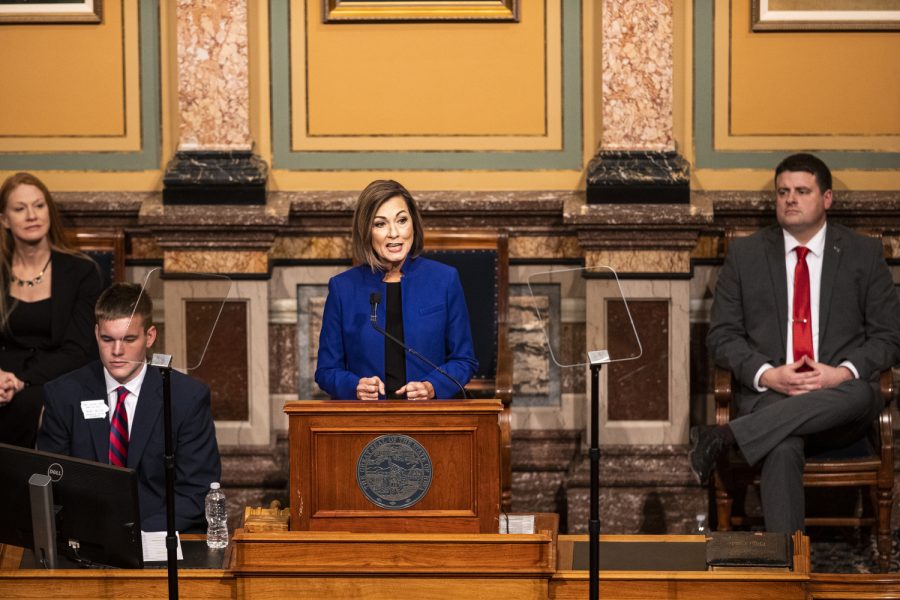Reynolds signs anti-trans bills into law Wednesday afternoon
Gov. Kim Reynolds delivers her 2023 Condition of the State speech at the Iowa State Capitol in Des Moines on Jan. 10, 2023.
March 22, 2023
Gov. Kim Reynolds signed the “bathroom bill” and a ban on gender-affirming care for minors into law Wednesday afternoon.
Reynolds signed Senate File 482 that bans transgender students from using restrooms at public schools that don’t match their sex assigned at birth.
The bill would allow schools to make accommodations for transgender students to use single occupancy or unisex bathroom facilities if they request.
RELATED: Students across Iowa walk out in protest of anti-LGBTQ+ legislation
Reynolds also signed Senate File 538, which bans a number of medical treatments for Gender Dysphoria, the medical diagnosis needed to receive gender-affirming care, including hormone replacement therapy, puberty-blocking drugs, and surgical options for removing breast tissue.
Currently, Iowa is one of eight other states that signed these bans into law ,and almost 20 other states are currently considering bans, according to ABC news.
The bill would ban a number of medical treatments for Gender Dysphoria, the medical diagnosis needed to receive gender-affirming care, including hormone replacement therapy, puberty-blocking drugs, and surgical options for removing breast tissue.
The law does contain exceptions for minors with sex-development disorders, more commonly referred to as intersex people, who have abnormal genitalia or genetic expressions of sex.
The American Medical Association currently recommends hormone replacement therapy, puberty-blocking agents, and the removal of breast tissue in transgender males under the age of 18 based on the level of gender dysphoria an individual experiences.
During the debate over the bill, Democrats pointed out that gender-affirming treatment has been linked to reduced rates of suicide.
A peer-reviewed study performed by the LGBTQ+ mental health non-profit Trevor’s Project found that receiving gender-affirming care correlated to a decrease in the risk of suicide for transgender youth.



